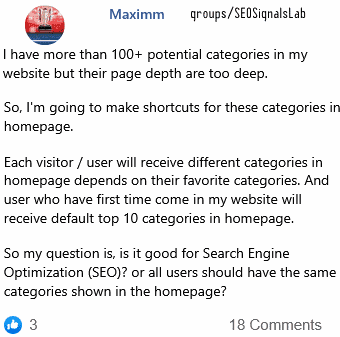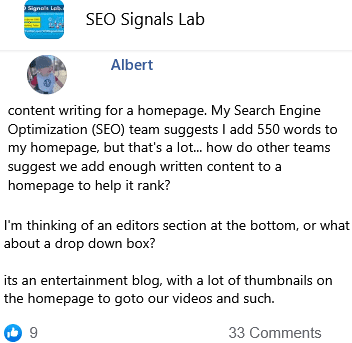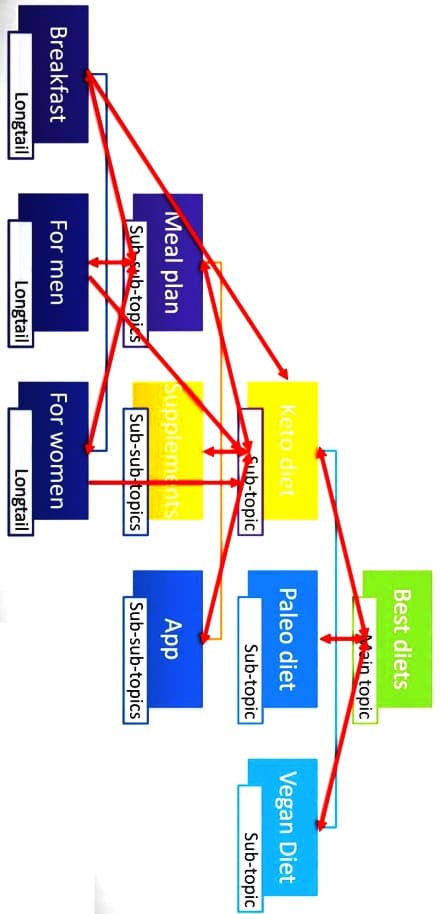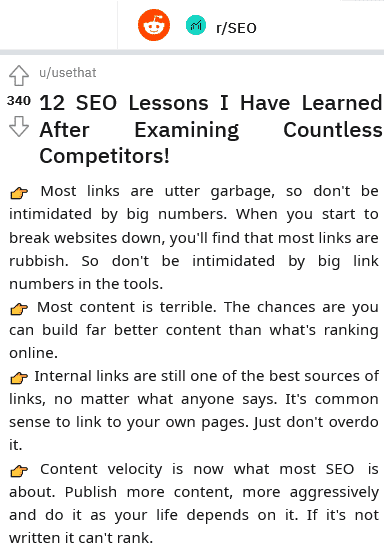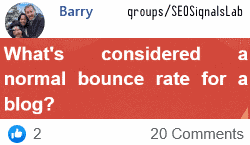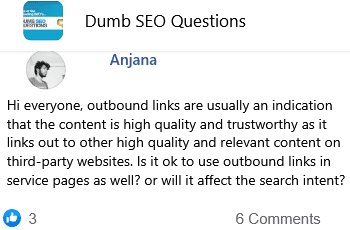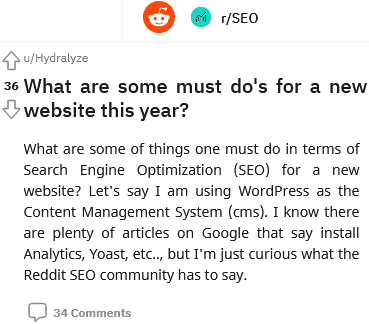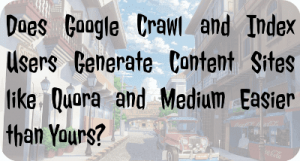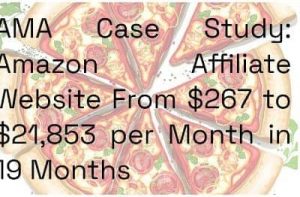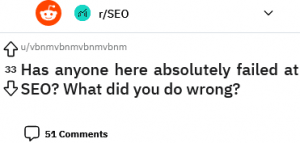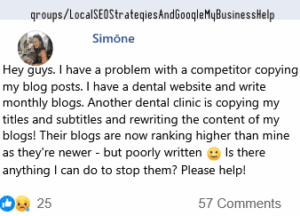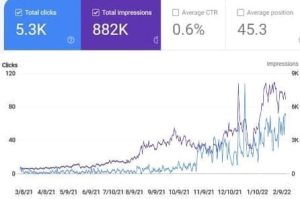Discussion 1: Deploying Categories on Homepage
Maximm
I have more than 100+ potential categories in my website but their page depth are too deep.
So, I'm going to make shortcuts for these categories in homepage.
Each visitor / user will receive different categories in homepage depends on their favorite categories. And user who have first time come in my website will receive default top 10 categories in homepage.
So my question is, is it good for Search Engine Optimization (SEO)? or all users should have the same categories shown in the homepage?
3 👍🏽3
18 💬🗨
📰👈
Content personalization is the next level of web experience. As long as you are technically covered, you should be fine and even increase your conversion rates.
Linking from the homepage does mean something, but dynamic homepages are the norm. Category pages are still pages, just like articles on news websites that show up and disappear from the front page. If you give Google a clear way to understand your website, it will handle it properly.
Agreed, and the key there is giving Google a clear way to access content.
Truslow 🎓
Google will only ever see the first visit – IF the coding is set to default to that default set when the user is unknown. In other words, the code needs to be sure "if I'm not absolutely sure that this user has picked other categories, then show these." So long as you do that – it'll always see those default categories.
That said… if the top categories change a lot – that can be problematic. Those links from the home page send the "Hey, I'm important!" signal. If Google comes back the next day and a different set of things is there – then your site is saying, "No! I'm the important thing!" And the next day the same thing – so eventually you end up with Google deciding that "NOTHING" is important.
If it were me, I'd make sure the structure of the categories was set up logically with good parent, child structure that starts broad and narrows down. 10 top level categories with 10 second level categories with 10 final destination categories means you have 1000 potential categories that are never more than 3 deep. You have ZERO posts in the top and second level categories – just down in the bottoms ones. This way, as you're in one of the higher ones – you're seeing the broad mix of everything in the more specific categories below.
So… let's say one is "Pets" – and below that you have "Cats, Dogs, and Fish" and then below each of those you have things like "Dog Training" and "Fish Habitats" and "Cat Toys" and "Dog Grooming" – or whatever it is.
If I'm in the pets category – top level – I see all the posts from all the Cats, Dogs, and Fish categories. If I drill down to dogs, I see both Dog Training and Grooming. And if I drill down to Training – I just see those. This brings the "deep stuff" higher by having it linked to from the higher level pages on the site.
Maybe also give users (and Google) the ability to access it different ways, too. Not just a "what's new" page, but a "Most popular" sorting, or a "Most Shared" sorting. This helps keep those popular and engaging articles up near the top of your site too.
And then on the home page (or on a dedicated page for that) don't show random or top categories, but show the "Latest Posts." Ideally, if your IA is good and you are producing content somewhat frequently, you would want to show the latest 2-3 posts from each of the top level umbrella categories. That way – if there are 10 of those, you have 20-30 posts showing which represent a fair sampling of the entire offering of the site.
Don't go trying to pigeonhole your users by having them pick things they like. First of all, 90% won't do it. We learned that will all the failed attempts for companies to create "Portal Sites" like AOL – Yahoo tried it decades ago, Microsoft has tried it (right on your desktop – and still no one uses it), and every other major media outlet has tried and failed.
The second problem with pigeonholing like this is that, for the few people who do pick what they like – now all they are seeing are the things they have said they like. They won't be exposed to related things or tangential things that might pique their interest or broaden their interests.
Now… it may be another thing if you're driving traffic and a lot of it is returning visitors who come every day for things. In that case though – you're not going to want to do something simple like that – you're going to want to develop a more robust solution that will both give them what they want AND give them what you need them to see in order to achieve your financial goals. And it won't be something as simple as "pick your favorite topics."
Fix the IA. Don't create a gimmick. It won't help you, the users, or Search Engine Optimization (SEO)
Thanks alot for the insight, appreciate it.
I make related categories which users used to buy.
For example:
– User A loves to buy sofa, then in their homepage will show related categories which similar with Sofa, like Couch, Chair, etc.
that things will active if users login through his account. If they're not login the default top 10 best categories will show up.
And Google bot will always see top 10 best categories and wont change alot.
FYI: I already have all categories listed in page depth 4. So I want top 10 best performing categories to close near the homepage to improve its depth which is the depth will be in the page depth 2.
Is it still bad?
Truslow 🎓
As long as Google has a "regular" way in that shows the structure of the site – then that should be okay. Just be careful about blocking other ways in.
📰👈
What Conditions to Install Backlinks to Home Page Instead Of an Inner Page?
Should a Website Designer Attach a Backlink to the Client Website? Dofollow or Nofollow and at Home Page or Every Inner Page
Discussion 2: The Guide for Content Writing for a Homepage
Albert
content writing for a homepage. My Search Engine Optimization (SEO) team suggests I add 550 words to my homepage, but that's a lot… how do other teams suggest we add enough written content to a homepage to help it rank?
I'm thinking of an editors section at the bottom, or what about a drop down box?
its an entertainment blog, with a lot of thumbnails on the homepage to goto our videos and such.
9 👍🏽9
33 💬🗨
📰👈
This is bad advice from the SEO team. Your homepage will rank for your brand terms regardless, *if* you do proper SEO well for the site and business as a whole.
Think of your site as a company headquarters (or if an ecommerce site, as a department store). Your homepage is simply the street entrance and lobby, the bit people may pass through not to get *to*, but to get to specific departments. The job of your homepage, just like a lobby, is to help them get to the specific department (content/page/section) they want if they don't already know the way, but to provide as little friction or distraction as possible for those who already know where they need to go.
So if your site were for an insurance company, it may have departments that sell or explain the policies, departments that handle changes, additions, cancelations or claims, etc. Anyone contacting your company, or wanting to speak with your company wants one or more of those departments.
In search terms, this means that ideally they want to land in one of your category pages or specific content pages representing their intentions and needs. They don't want to land on your lobby and have to find it for themselves – they just came from a search.
Your SEO team apparently don't know this most fundamental of all principles, despite it being a core fundamental from before Search Engine Optimization (SEO) even had a name. Their advice sucks.
Build content pages that deal with specific user needs and wants. Your homepage will rank well on what it needs to, your brand terms, just on the links to the homepage from all those content pages.
💟👍🏽23
Exactly. This is a core principal for Conversion Rate Optimization (CRO), served well by SEO
Kathy » Ammon Johns
Can't tell you how many times I've had to overcome this objection with clients. It's always news to them when I say, "The job of the home page is to get them off!" (and over to where you can speak to just one audience)
🤔👍🏽3
Ammon Johns 🎓 » Kathy
Absolutely. Help without friction.
Although, having started out heavily in the adult industry websites in the mid 90s, I had to chuckle at your phrasing. 😃
👍🏽🤭4
Kathy » Ammon Johns
Ha! You did that too? LOL
Maybe you're familiar with a famous blog of mine "How to market adult sites online." (or something akin to that, might have been sex toy sites). It was number 1 in the WORLD for years! It was an audit I did for a friend in exchange for a donation she made to my cause. I finally took it down because it generated too many calls from businesses from all over the world who couldn't afford the $1M/mo budget I said they needed for ads in order to compete. 🙂 Anyone want to buy that article? 🙂
🤭2
S. M. Fahim
If you want to rank for only the branded keywords, you don't have to worry about content that much. Just provide whatever needs to convert.
On the other hand, if you want to rank for certain broad keywords, then you should provide some information which might increase word count.
What I do is to write the content, mainly focusing on conversion and then SEO, divide them into multiple headings, and send to the UX designer.
The User Experience (UX) designer creates a design so that the text does not look shit. Instead it creates a good transition.
For inspiration, you can check the WP Rocket homepage.
Albert ✍️
Hi Everyone, wasn't really expecting such an enormous amount of help, insight, and explanation. I did not want to add word count and sacrifice space just to compile with this request. But i wanted to check in with this group, because i find a lot of great tips here. So thanks for the moderators for jumping all over this.
Haider
Ammon explained it very well and content pages should do the job with proper internal linking.
"But"
Sometimes home page is competing in Search Engine Result Page (SERP) instead of a proper service/category page. Weird case-scenario but adding content actually helps in this case however it's proper solution is to well classify and structure your site as you may get more traffic from a specific search term but losing other golden opportunities. Agreed Ammon Johns
If in the scenario the homepage is consistently in the top position of the Search Engine Result Page (SERP), with only ads above it, there's no need to change anything, as how can it rank any better? If it isn't ranking that high, then something can outrank it, and if YOU are not making that page, which would be the internal content or category page, one of your competitors will.
There is NO situation where you ought to be trying to rank the homepage for a query that is best served by a specific category or content page, where a content page is what the search user is wanting (search intent). None.
In almost any market or situation, the only searches that should deliver the searcher to the homepage are brand searches, and navigational searches. The rare exceptions tend to be where a site is a kind of search engine and the homepage *is* also the most functional page of the site. In practice, 99% of those situations will also fall under 'brand search' anyway.
Optimising the homepage for a query because you don't have a content page beating it is sort of like optimising your car for being pushed, by fixing handles to the back and doors, because it's engine doesn't work. Make the thing work properly if you want any kind of efficiency.
Haider » Ammon Johns
Absolutely right!
Jeff » Ammon Johns
Advice is solid as always; however, I wanted to add that trying to "rank" a home page for anything other than the brand is really some two-dimensional thinking in the world of organic search. For the most part, Google ranks web pages, not websites (yes, there are a few things, such as quality, that are looked at on the site level, but not authority) and because of search engines, literally every page on your website has the potential to become a "home page", that is, the first page a customer sees. Each page on your site is a potential touchpoint along a consumer's journey to purchase – it's your job to create content for those touchpoints that move them along that journey. Why bother to try and rank your home page for a particular item when you probably have dozens of other pages that can do a better job. Also, just so it is said (again), there is no magic number for the amount of words of content on any page – Google doesn't count words. In general, pages with more words rank higher not because they have more words, but because they go into greater detail about a topic. Trying to match a competitor's word count is like trying to match the computing power of Apollo 11 and expecting to get to the moon.
I always prefer to say that while a site has only one 'Home page', every page can be a starting page or a landing page, and that often the Home page is not the one the customers or visitors want to start from. Usability wise, having to go through the homepage is like those annoying companies where in order to speak with the department you already know you want, you first have to go through an automated system and dither around selecting menu options before you can.
📰👈
A supporting page is at the First Position, and the Home Page is at the Second. I added the Canonical from the Supporting Page
Local SEO and Landing Page for The Homepage of Wedding Photography Business
